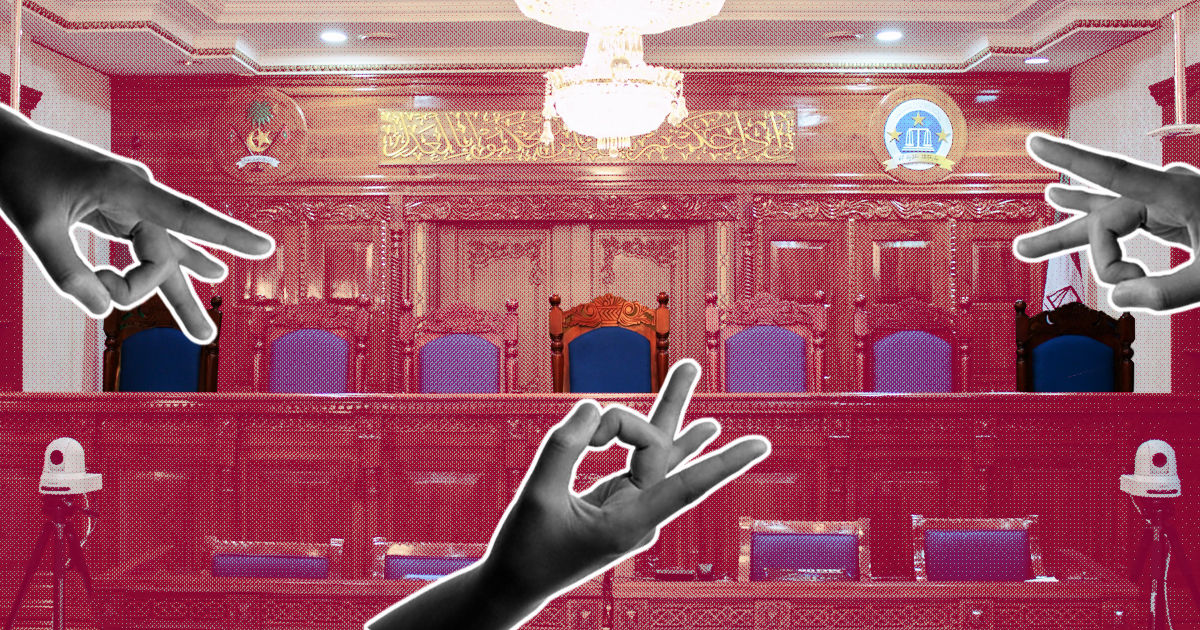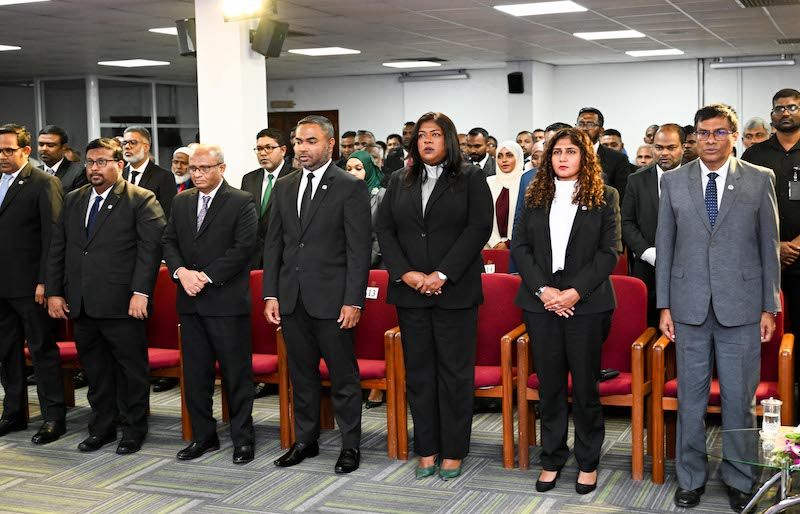Parliament shrinks Supreme Court ahead of ruling on party control of lawmakers
The judicial watchdog suspended three justices shortly after the vote.


Post hoc purge

Fast-tracked approval
Bill sponsored by PNC MP for Holhudhoo Abdul Sattar Mohamed introduced to the floor.
Close to midnight, Majority Leader Falah instructed all PNC MPs to vote in favour of passing the bill.
Preliminary debate begins on the amendments proposed to the Judicature Act.
Bill accepted for consideration with 64 votes in favour and 12 against.
Majority Leader Falah denied media reports about 11 PNC MPs refusing to vote for the bill. As nine MPs were out of Malé on party-endorsed travel, only two MPs defied the whip line, he said, assuring an inquiry to determine their failure to be present for the vote.
In a message to the PNC MPs’ Whatsapp group, President Muizzu condemned the defiance of the three-line whip as Falah warned of disciplinary action.
Former MP Ali Hussain petitioned the Supreme Court for a stay order halting any disciplinary action against MPs under floor-crossing prohibition.
PNC MP Azaan removed from Whatsapp group.
A group of 71 lawyers, including a former chief justice and attorney general, submitted petition to parliament urging lawmakers to reject the bill.
Judiciary committee completes review in under an hour and decides to forward the legislation to the floor without any changes.
Impromptu judiciary committee meeting called at 10:15pm after Counsel General Fathmath Filza submitted comments to the committee report, objecting to the proposed impeachment without due process or affording the right for justices to mount a defence. The bill waives the standard timeframes laid out in law for normal procedures.
Third reading of the bill and final one-hour debate on the committee report.
Roll call vote to pass the bill at 10:15am.
JSC suspends three justices.
Supreme Court hearing scheduled for 11:00am canceled, reportedly after lawyers were already inside the courthouse.
Discussion
No comments yet. Be the first to share your thoughts!
No comments yet. Be the first to join the conversation!
Join the Conversation
Sign in to share your thoughts under an alias and take part in the discussion. Independent journalism thrives on open, respectful debate — your voice matters.




